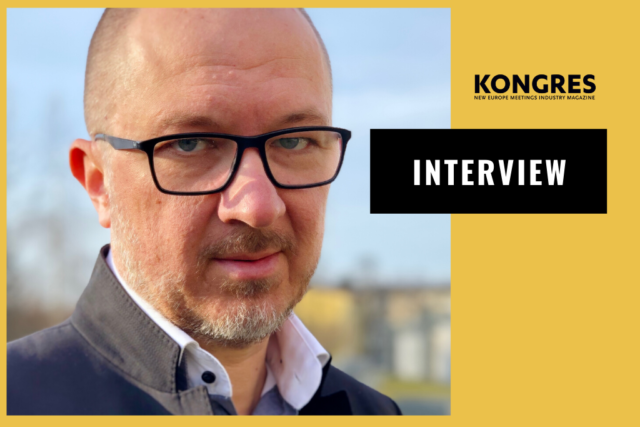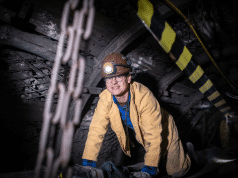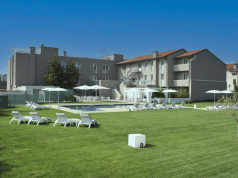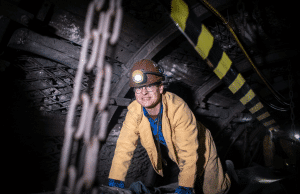Q: What does the COVID-19 outbreak mean for the virtual solutions industry? Were you prepared for something like this?
No one was prepared for this. Even during the European Film Market in Berlin in late February not a single professional mentioned it as a possible factor, not even the Asians. The coronavirus looked like something distant, “some people coughing in China” were not our business, but in a week or two everything turned upside down.
However, certain industries by coincidence naturally fit the current situation, although it was never planned, like food delivery, online shops, all other online services, etc. The film, video and virtual reality (VR) industry also fits and has been immediately recognized as an industry where consumption of our content has raised enormously in the last weeks.
Q: Times are changing, live events are currently not an option. To what extent can virtual events take over?
It seems that we are all trying to normalize a flow of goods, while the flow of people – especially internationally – will be severely limited for an unknown period. For most businesses, this situation means that they will be able to produce, promote and distribute goods, but will keep most of the human business contacts in a virtual space. These include everything from simple meetings to complex sales conferences, trainings, congresses, symposiums, with certain formal prerequisites even the shareholders’ general meetings.
Q: What are the advantages of virtual events over a simple virtual meetings software?
This can be easily compared with the real world. A consumer software solution (Skype, Zoom…) can work well for classic meetings that in the real world don’t need any special support, event organizers or special venues. But the usage of such software is limited and is not appropriate for more complex events, that need professional support. As mentioned before, a typical professionally supported virtual event mainly aims to replace more complex events, like congresses and sales conferences.
Typical elements of a proper virtual event
- Live transmission with 2 or more cameras
- Various speakers with their PowerPoint presentations, round tables, live product presentations
- Pre-recorded video clips
- Download of various pdf documents
- Feedback loop for remotely based participants via chat, e-mails, video calls
- The whole event is directed by a proper TV director and if necessary, all other professional services are added like lighting, set design, make-up, etc.
I would especially emphasize the role of pre-recorded video clips that dramatically expand the effectiveness of virtual events. These clips go beyond a classic “talking head” and are much more visual, while recommended lengths are between 2 to 5 minutes each.
Typical applications for pre-recorded video content are:
- Functional presentations of various products
- Presentations of vehicles, motorhomes, boats…
- Virtual tours of real estates
- 2D and 3D animations of concepts, workflows, trends…
- Presentation of technologies and processes in the real environment
- Food processing
- Using of sports equipment in the natural environment
- Using of medical equipment
- Laboratory processes
- Various video manuals for assemblies, usage and maintenance
- User testimonials
- … and countless other applications
These video contents can also be used for simpler Zoom / Skype meetings and are also stand-alone marketing materials, ready to use on a company’s website, YouTube, Vimeo…
Q: Tell us why we should use Studio Virc d.o.o. to host our next virtual event.
It seems that we are all trying to normalize a flow of goods, while the flow of people – especially internationally – will be severely limited for an unknown period. For most businesses, this situation means that they will be able to produce, promote and distribute goods, but will keep most of the human business contacts in a virtual space. These include everything from simple meetings to complex sales conferences, trainings, congresses, symposiums, with certain formal prerequisites even the shareholders’ general meetings.
Q: What types of virtual events have you hosted so far or how did you assist with virtual events?
During the peak of epidemics in Slovenia, we hosted the international sales conference for Adria Mobil with a few hundred remote international participants. We combined the pre-recorded and edited video footage of new products with live presentations of speakers shot with 2 live cameras and complemented with PowerPoint presentations and the chat channel for participants. The event that was held despite the difficult times sent a crucial positive message to the client’s distribution and marketing network.
For May and June, we are already working on more similar events – mostly annual sales conferences for major Slovenian brands.
Q: What will happen when we suppress the virus? Do you think virtual events will die down or will they remain a constant in our industry?
It seems that the free flow of people, even business people, will be reduced for a long time even after the formal restrictions are lifted. I was flying a lot in the last few years but will re-consider my flights in the future. Many businesses will recognize how many trips were unnecessary. Virtual events will grow up, will partly replace some business practices and will lead to more cost-efficient business communication. However, at the end of the day, we are still human, and nothing can completely replace proper face-to-face contact. Most probably we will experience a mixture of both live and virtual contacts and events that will be combined in a consistent after-coronavirus package.














